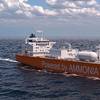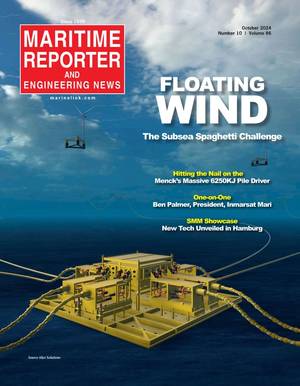American Superconductor Corporation issued an update on recent advances in the utilization of high temperature superconductor (HTS) wires in electric power applications, including power generation, transmission and distribution, and ship propulsion electric motors.
Power Generation: On October 28, GE announced its plans for
the development of high efficiency electric generators based on high
temperature superconductor (HTS) wires (see
http://www.gepower.com/corporate/en_us/aboutgeps/releases/102802.pdf ). At
its kickoff meeting with the Department of Energy, GE Power Systems vice
president Joe Ebacher presented GE's vision "to take HTS technology from a
place where it holds promise, to full commercial viability."
According to GE, "Recent progress in HTS wire manufacturing has helped
pave the way for the development of an HTS generator with the potential for
competitive cost, high reliability, rapid market introduction and a high
probability of acceptance by the power industry." GE is currently
demonstrating an HTS rotor for a 1.5MVA generator that uses HTS wire made by
AMSC. GE plans to also build and test a utility-scale 100MVA generator, for
which AMSC has been named the primary wire supplier.
Power Transmission & Distribution: The October issue of the Digital Power
Report (http://www.digitalpowerreport.com ) focuses on the growing demands on
the transmission and distribution grid in the U.S. and the clear need to
upgrade this backbone of our daily lives to meet the need for increasing
amounts of electricity at higher levels of reliability. The demands to
upgrade the power network are real and urgent and are recognized at the
highest levels within the electric industry and government. As stated in the
report, "We aren't talking policy wonk papers any more; a broad consensus is
now forming in favor of substantial new investment in transmission and
distribution."
Digital Power Report authors Peter Huber and Mark Mills point to
technologies that are available and are under demonstration today that can be
applied to upgrade power networks. Commercially available technologies
include Flexible AC Transmission Systems (FACTS), such as AMSC's D-SMES and D-
VAR(TM) systems, which are power electronic products utilized to increase grid
reliability and power flows through existing grids. The authors also point to
HTS power cables, which are in the demonstration stage today, as a key
technology for relieving grid congestion and upgrading power networks.
According to the report, spending on power transmission has been in sharp
decline over the last 30 years. Huber and Mills comment that " ... like the
interstate highway system for cars, the main investments in the electron
highways were decades ago," but "unlike highways, the carrying capacity of
electron pathways can be dramatically upgraded with modern hardware."
Ship Propulsion Electric Motors: A recent study by MSCL Inc., an
international maritime consultancy, stated that "Ship builders and naval
architects ... all agree that electric drive is becoming the drive system of
choice for many new ships of every type and it is expected to become dominant
in the market within the next decade." According to MSCL, the market for
electric ship propulsion motors is expected to grow from $400 million per year
today to $2 billion to $4 billion per year in ten years, a compound annual
growth rate of more than 20 percent. HTS motors now under development are
featured in a recent article in Maritime Reporter. The article discusses the benefits that HTS ship propulsion motors bring to naval architects because of their significantly smaller size and weight and greater operating efficiency. These benefits could translate into savings of hundreds of thousands of dollars per year per ship - a savings that drops right to the bottom line for ship operators.
Featured videos

Taking the First Step Toward Autonomy

Send in the Drones (to deep, dark, confined maritime spaces)
Subscribe for
Maritime Reporter E-News
Maritime Reporter E-News is the maritime industry's largest circulation and most authoritative ENews Service, delivered to your Email five times per week











